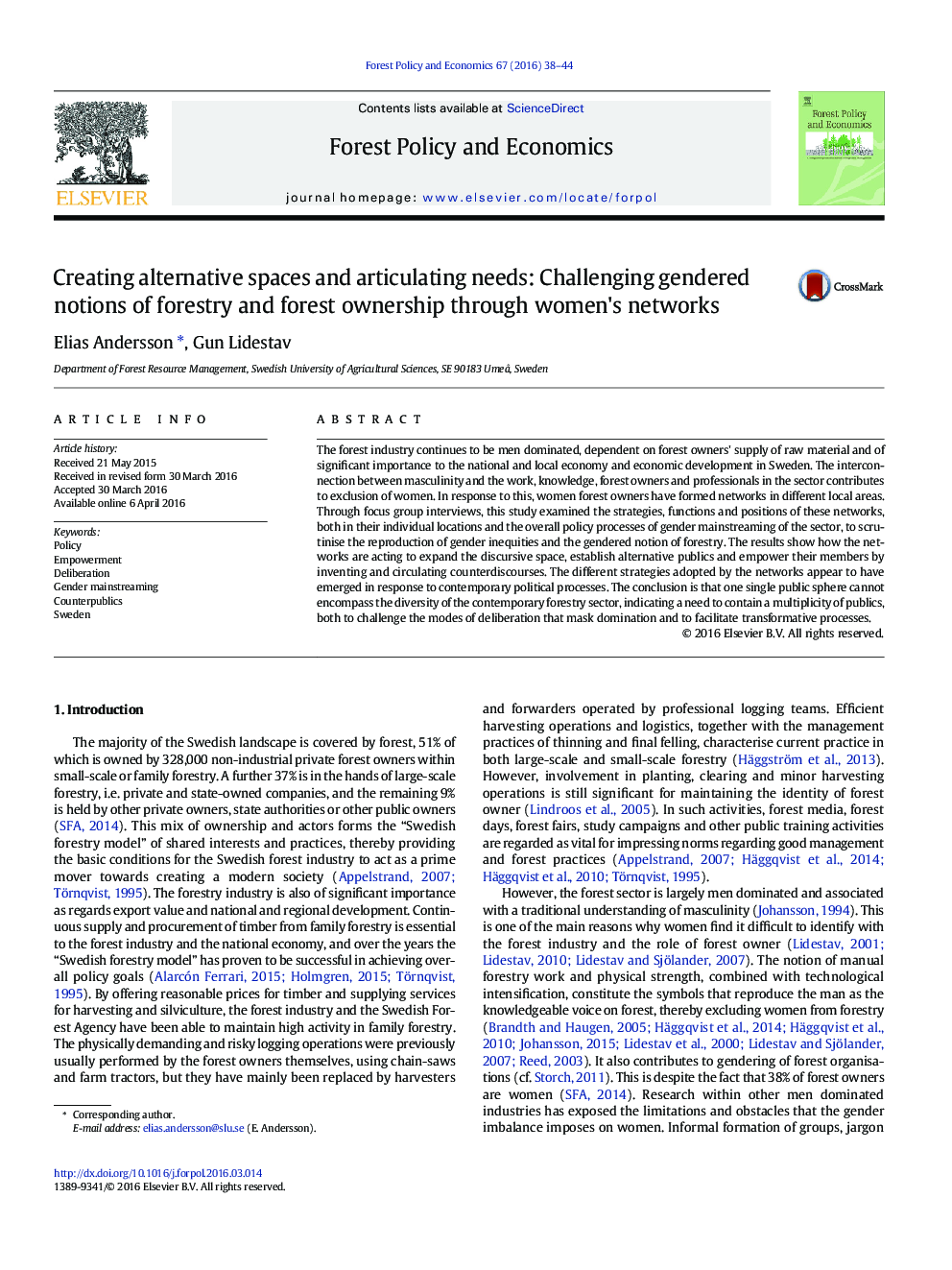| Article ID | Journal | Published Year | Pages | File Type |
|---|---|---|---|---|
| 91100 | Forest Policy and Economics | 2016 | 7 Pages |
•The networks expand the discursive space and establish alternative publics.•By inventing and circulating counterdiscourses, the networks empower their members.•The method of focus group interview work empowering•Multiplicity of publics is needed to facilitate transformative processes.•The notions of gender affect the process of gender mainstreaming.
The forest industry continues to be men dominated, dependent on forest owners' supply of raw material and of significant importance to the national and local economy and economic development in Sweden. The interconnection between masculinity and the work, knowledge, forest owners and professionals in the sector contributes to exclusion of women. In response to this, women forest owners have formed networks in different local areas. Through focus group interviews, this study examined the strategies, functions and positions of these networks, both in their individual locations and the overall policy processes of gender mainstreaming of the sector, to scrutinise the reproduction of gender inequities and the gendered notion of forestry. The results show how the networks are acting to expand the discursive space, establish alternative publics and empower their members by inventing and circulating counterdiscourses. The different strategies adopted by the networks appear to have emerged in response to contemporary political processes. The conclusion is that one single public sphere cannot encompass the diversity of the contemporary forestry sector, indicating a need to contain a multiplicity of publics, both to challenge the modes of deliberation that mask domination and to facilitate transformative processes.
